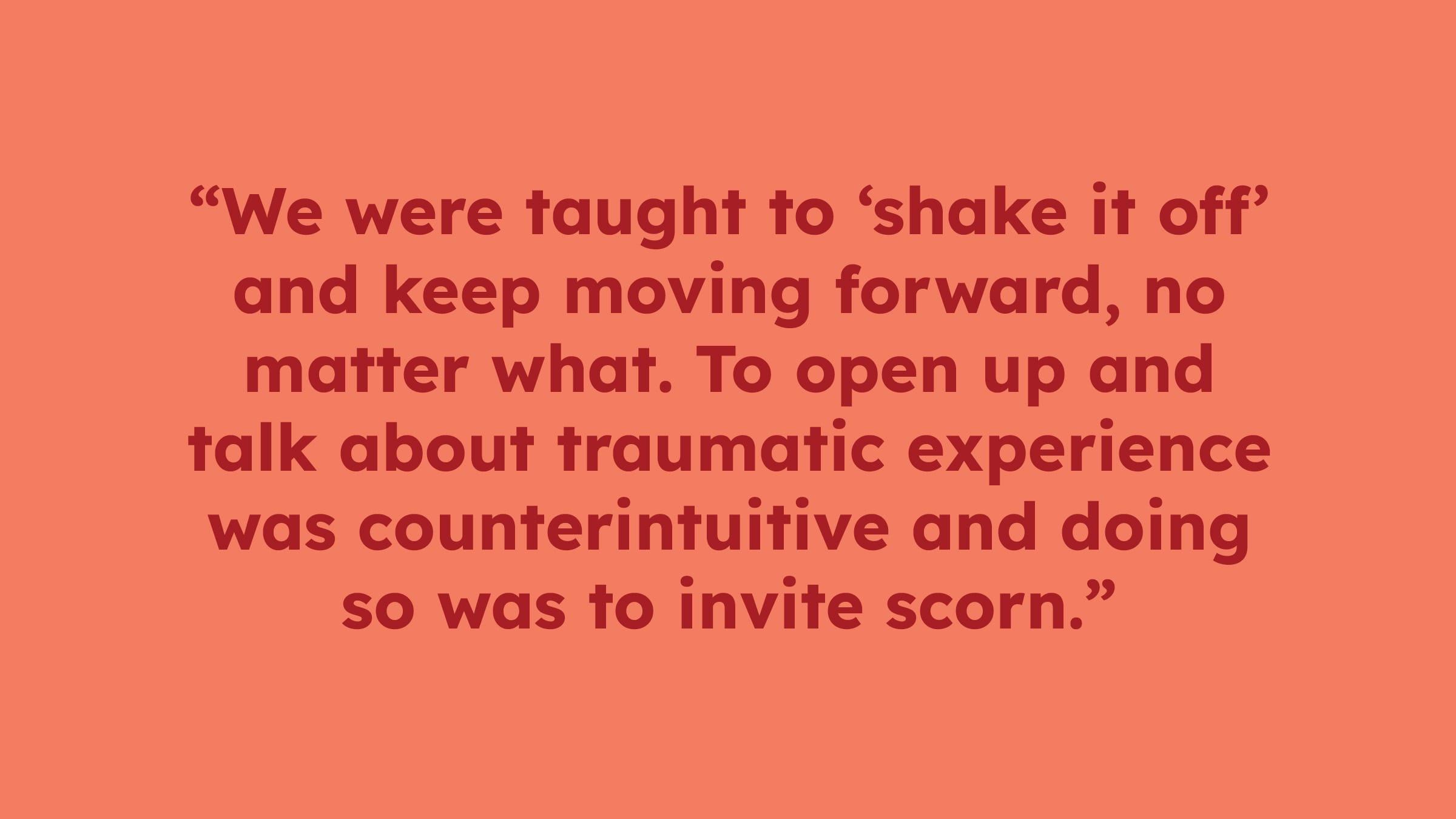When I was twenty-eight, I entered treatment and got clean and sober from an advanced addiction to alcohol and cocaine. After coming home, I continued in therapy and while there, bit by bit, revealed various traumatic experiences growing up in an alcoholic home. My father’s bloody self-destructiveness, sneering verbal abuse and offhand physical abuse butchered my self-esteem. Adding to my already outsized shame, when I was seven I was sexually abused. I vowed to never tell anyone. If nobody else knew, what difference did it make? Or so I thought. I carried the over-weighted secret for twenty years and then it spilled out anyway, a burden too onerous to carry anymore.
How does one convey traumatic experiences with a goal of helping others similarly afflicted? Perhaps a starting point is to find an adequate definition. A quick web search produced some ideas: “Complex trauma is exposure to varied and multiple traumatic events, often of an invasive, interpersonal nature.” Complex trauma in children is often referred to as "developmental trauma," the point being that healthy development is damaged in the formative years. Another definition noted that childhood complex trauma is “pervasive.” An apt adjective that captures how trauma’s insult to the healthy sense of self is profound.
School was one place where I began to pay the price for my trauma. From the outset, I hated it. It’s crowdedness and noise, its rules and expectations. I interpreted the environment as hostile and a place where I was regularly exposed as defective, less than my fellow students. Most days I was highly anxious there. If I understood something academic immediately then fine, if I didn’t, I’d just shut down convinced that I lacked the intelligence to solve problems. I was perceived as obstreperous thus inviting the wrath of my teachers which only reinforced my sense of inadequacy. Not surprisingly, I did poorly, and felt that adults were only interested in those that achieved more readily.
Emotionally, from childhood to adolescence and on into my late twenties I was depressed, angry, anxious and full of shame. There is a Greek word, alexithymia that translates roughly into “no words for feelings,” or lacking emotional vocabulary. Alexithymia may be a byproduct of trauma and is also prevalent for those growing up in an abusive, alcoholic or drug addicted homes where needs are ignored, discouraged or even beaten down. Early in therapy, I felt as if my jaw was wired shut and it was impossible for me to convey the complex Gordian knot of all my trauma-related emotions. Alexithymia keeps us isolated and fraught with negative thought patterns.
Another problem was that boys of my generation were raised to be stoic, unflappable and impervious to pain. The ideal certainly wasn’t to talk about difficult feelings. We were taught to “shake it off” and keep moving forward, no matter what. To open up and talk about traumatic experience was counterintuitive and doing so was to invite scorn. To my detriment, I pushed on, silently. What does the traumatized, emotionally pent up lacking self-esteem adolescent do? Often they start to self-medicate their “intense negative affect states.” Because trauma goes untreated for the aforementioned reasons, teens continue to self-medicate and over time develop substance use disorders. Several studies have found that substance use disorders developed following trauma exposure in anywhere from 25%–76% of individuals. Risk factors include: chronic stress, childhood trauma and family history of addictions.
In Part Two we see how self-medication of trauma is understandable but leads to an expansion of problematic behavior.




Comments